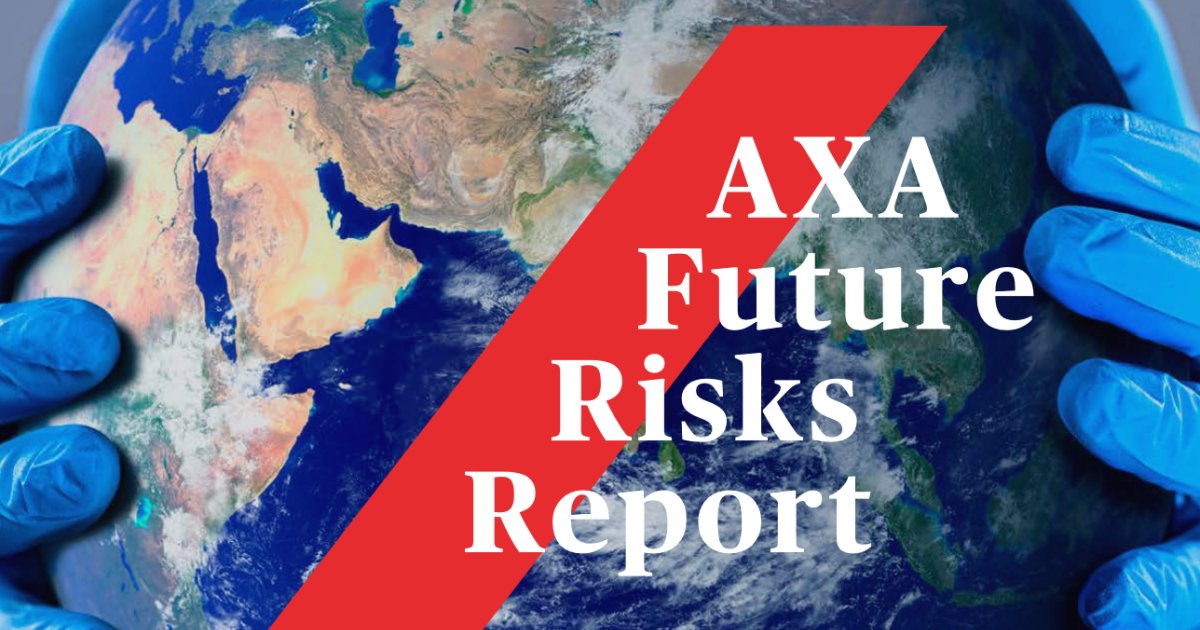
AXA’s seventh edition of its Future Risks Report states climate change has been knocked from the no.1 spot this year. No prizes for guessing what took its place.
The Future Risks Report highlights the perceptions of risks of more than 2,700 risk experts from 54 countries, and close to 20,000 of the general population.
Climate change-related risk had held the no.1 spot for years, but in 2020 it came in second to pandemics and infectious diseases; which ranked at no.8 last year.
That this should steal the attention is no surprise given COVID-19. However, the perceived risk level of climate change varied on geography. It remained the number one perceived risk in Europe but fell to third place in Asia and America. In North America, the proportion of experts who consider climate change a major risk has plummeted from 71% in 2019 to 46% in 2020.
In Australia, just 55% selected climate change as one of the top five emerging risks that may have a significant impact on society at large in the next five to ten years – and it wasn’t that long ago the place was on fire.
The changing attitude concerns AXA.
“There is a danger that, in focusing on COVID-19, the issue that is most pressing and visible, other emerging risks such as climate change or pollution get overshadowed,” said AXA Group Chief Risk Officer Renaud Guidée.
Even in the economic recovery from COVID, there’s risk building back better will be trumped by building back buggered in terms of climate change. The Organisation for Economic Co-operation and Development (OECD) recently expressed concern about recovery cash going into fossil fuels and stated the case for making COVID-19 recovery greener. OECD Secretary-General Angel Gurría made mention of solar PV employing more people per unit of investment and energy than fossil fuel based electricity generation.
CEO of AXA Thomas Buberl said this year’s edition highlights the growing interconnection of risks.
The Future Risks Report can be viewed here.
What Is AXA Doing About Climate Change?
AXA is a French multinational insurance and investment management firm. It has a presence in 57 countries including Australia, boasts 160,000 employees and distributors, and serves 108 million clients. So, it has a bit of influence.
The report is interesting, but it’s much easier to engage in hand-wringing over climate change than to act on it. However, AXA has committed to sourcing 100% of electricity consumed at its office sites and AXA-owned data centers from renewable energy sources by 2025, in line with its RE100 commitment. It has also committed to achieving investment climate neutrality by 2050, to double its green investment target by 2023 and totally exit the coal industry through underwriting restrictions.

 RSS - Posts
RSS - Posts



The post includes:
“Climate change-related risk had held the no.1 spot for years, but in 2020 it came in second to pandemics and infectious diseases; which ranked at no.8 last year.”
It seems to me perceptions are more focused on the short-term risks and downplays the longer-term catastrophic ones that need to also be addressed urgently.
The COVID-19 pandemic global infection cases number is currently (October 07, 2020, 01:21 GMT) at 36,029,658, with deaths at 1,053,994, which suggests a global death rate just under 3%. That may change as the pandemic progresses.
There’s emerging evidence of a more concerning problem known as “Long Covid” where long-term heart damage, cognitive impairment and chronic fatigue are being observed in a growing cohort of infection cases.
See: https://www.theguardian.com/world/2020/oct/04/long-covid-the-evidence-of-lingering-heart-damage
Although COVID-19 is a critical problem, it seems to me it’s clearly dwarfed by the urgent existential risks of dangerous climate change.
COVID-19 may ultimately directly affect millions, tens of millions or perhaps hundreds of millions of people globally, through death or perhaps more so in chronic ill-health cases, over the course of the pandemic, but continuing along humanity’s current GHG emissions path would lead to dangerous climate change that would likely affect billions of people’s lives and livelihoods and likely lead to civilisation collapse.
See: http://www.climatecodered.org/2019/08/at-4c-of-warming-would-billion-people.html